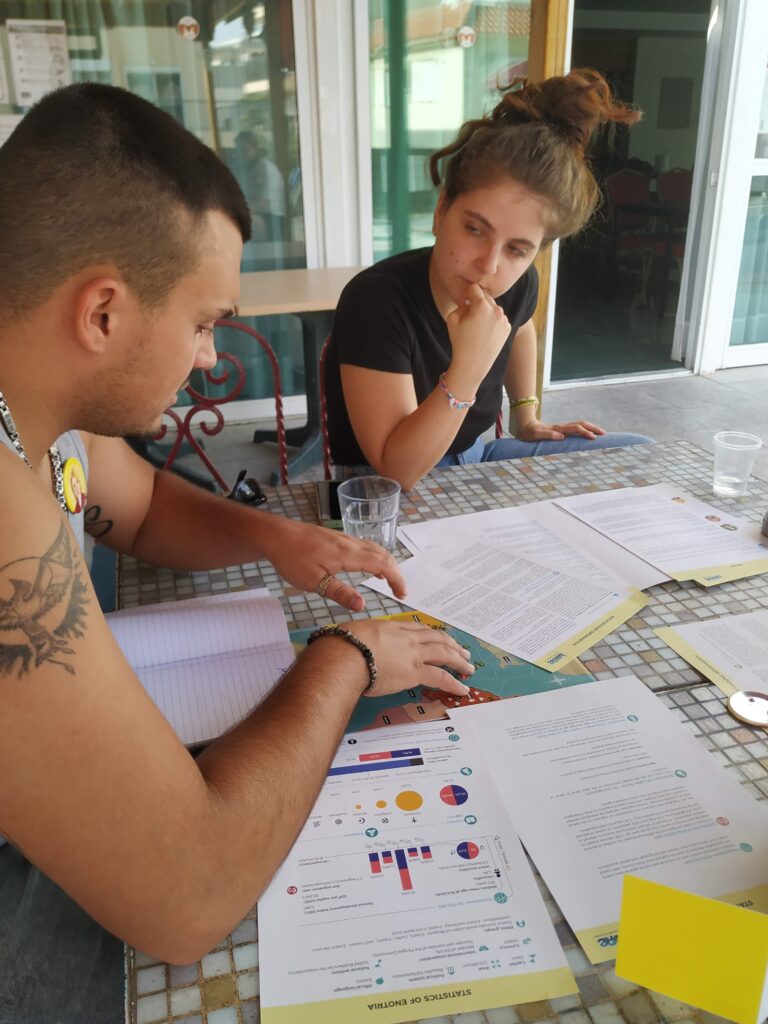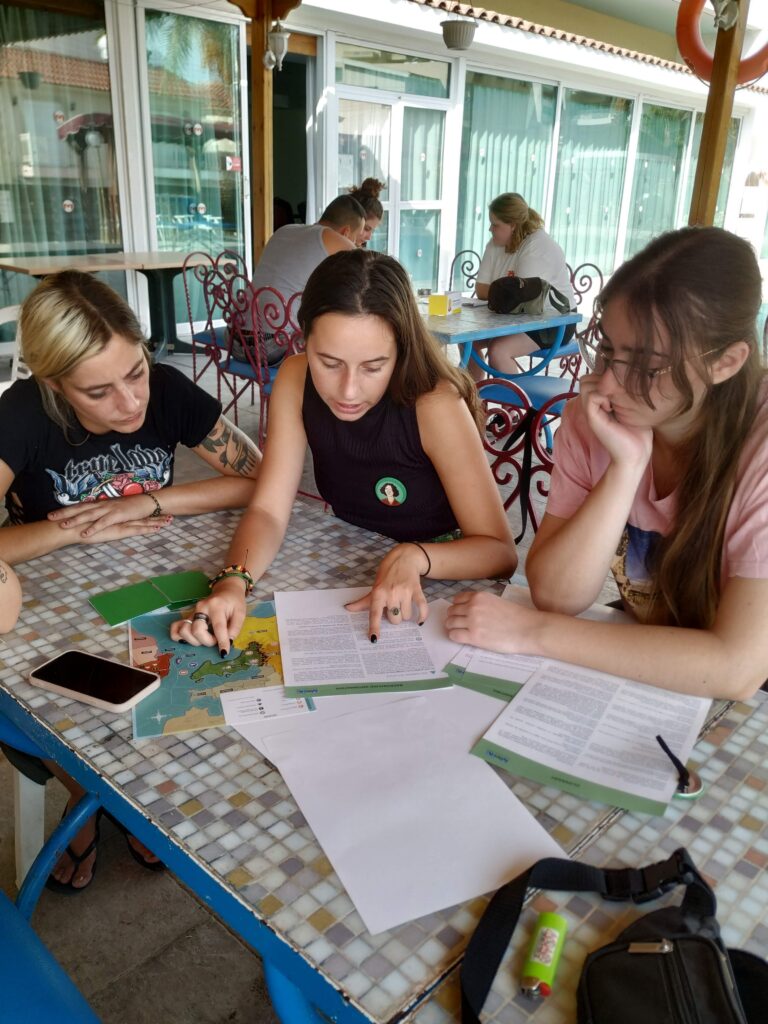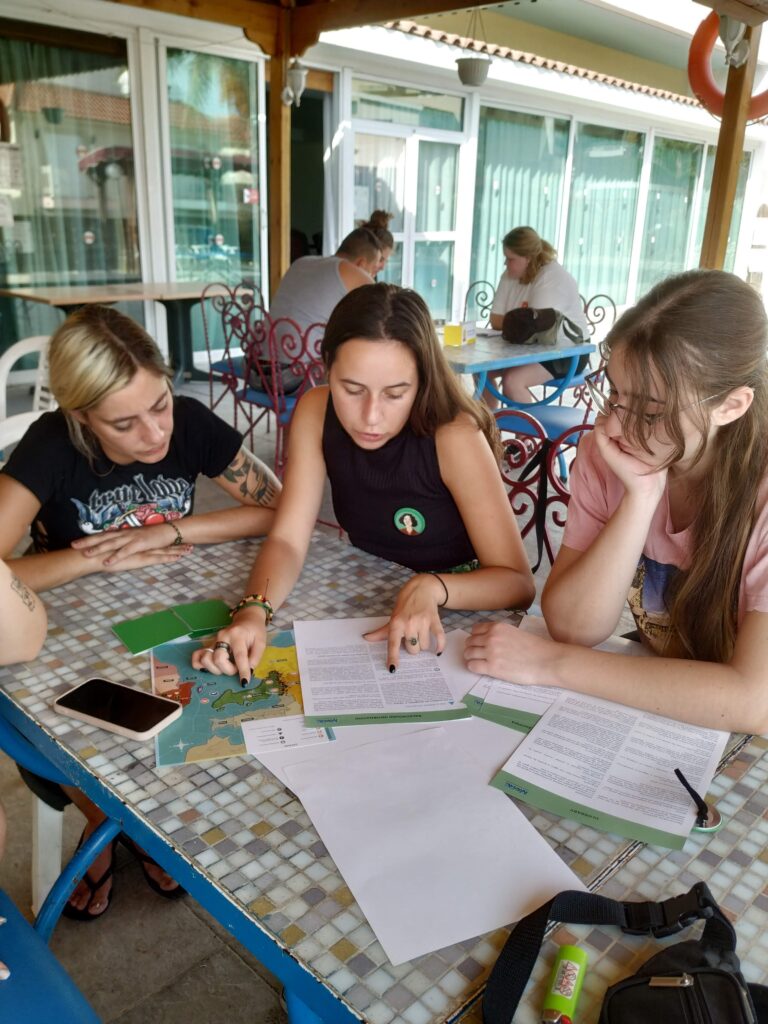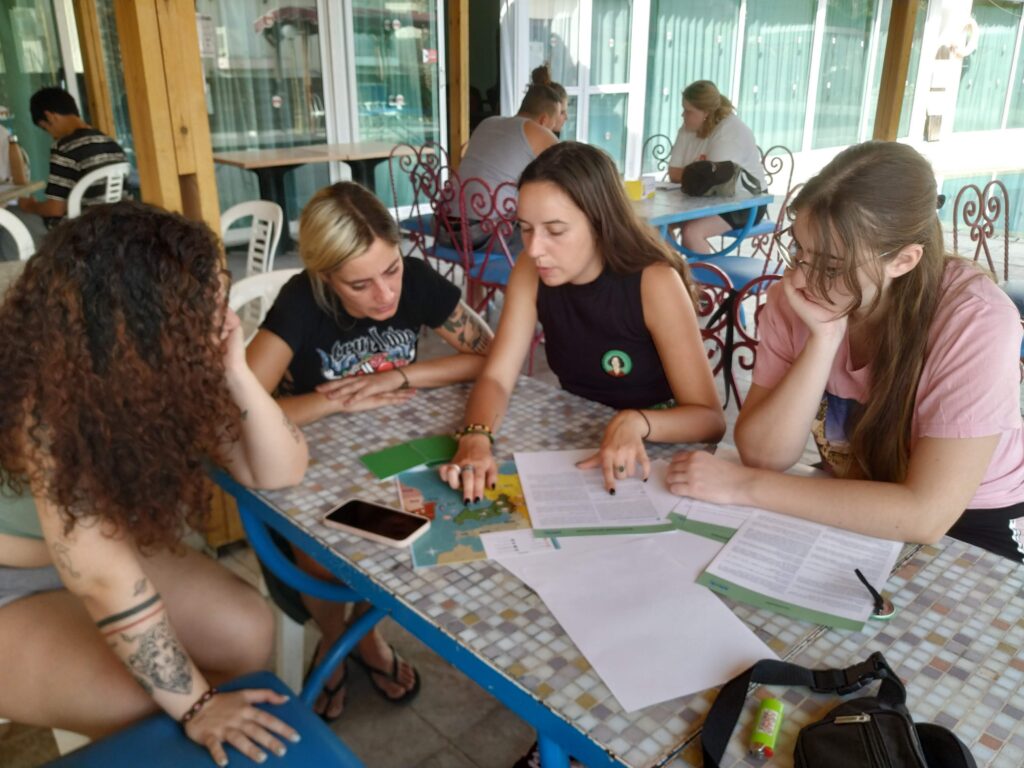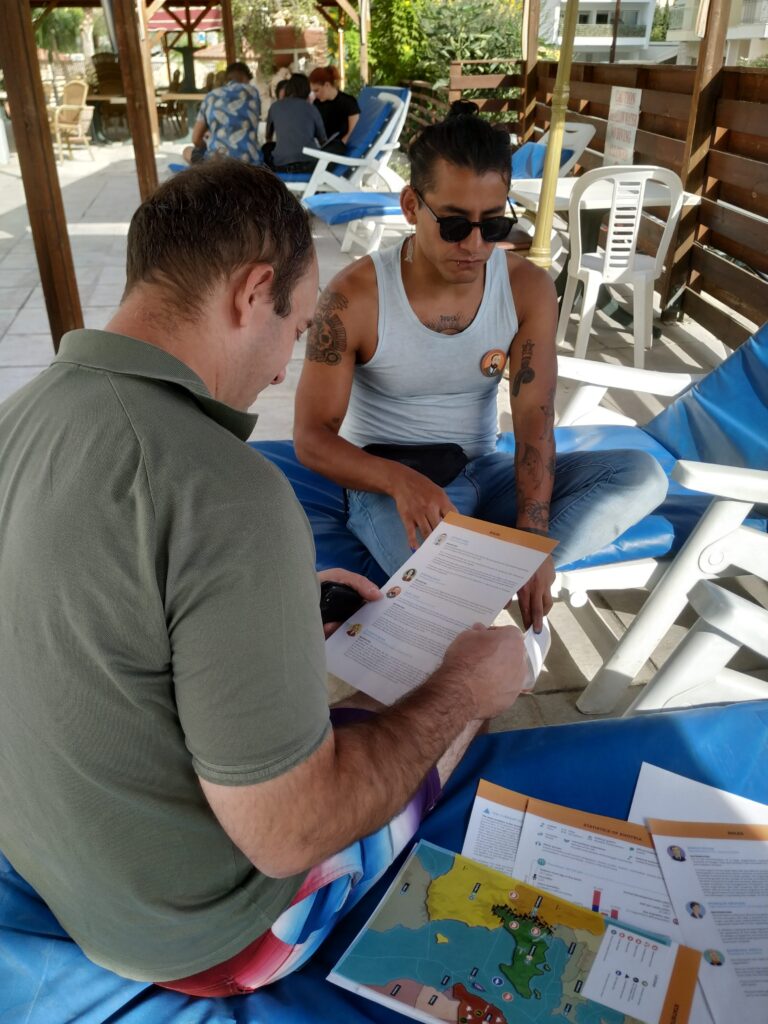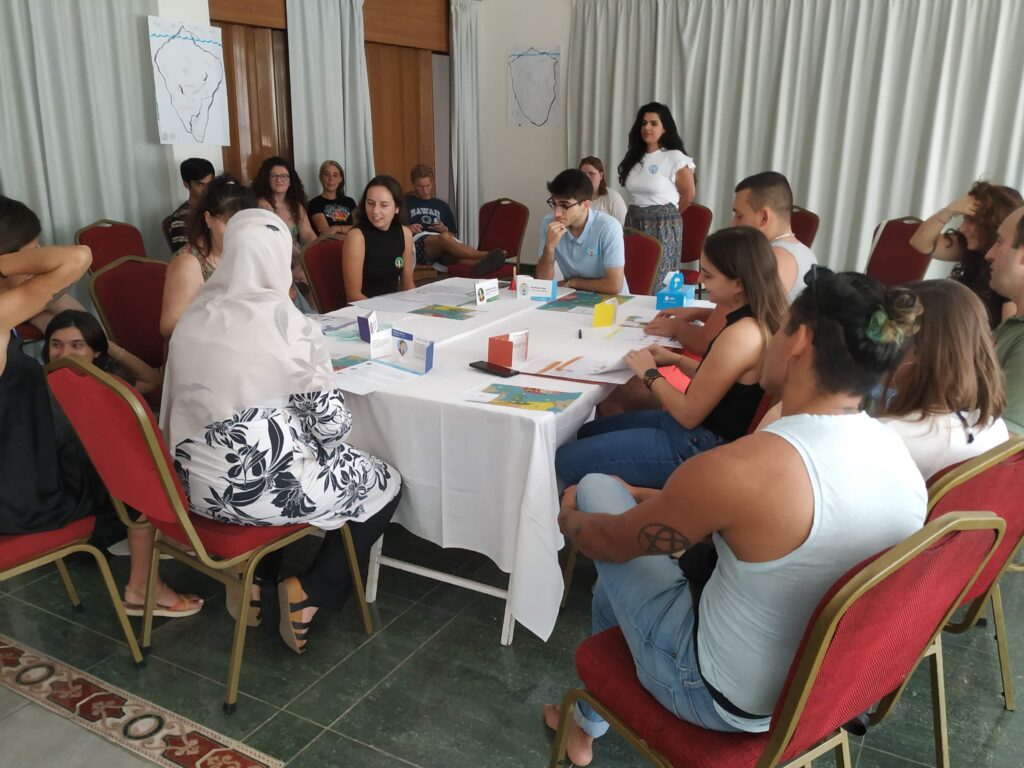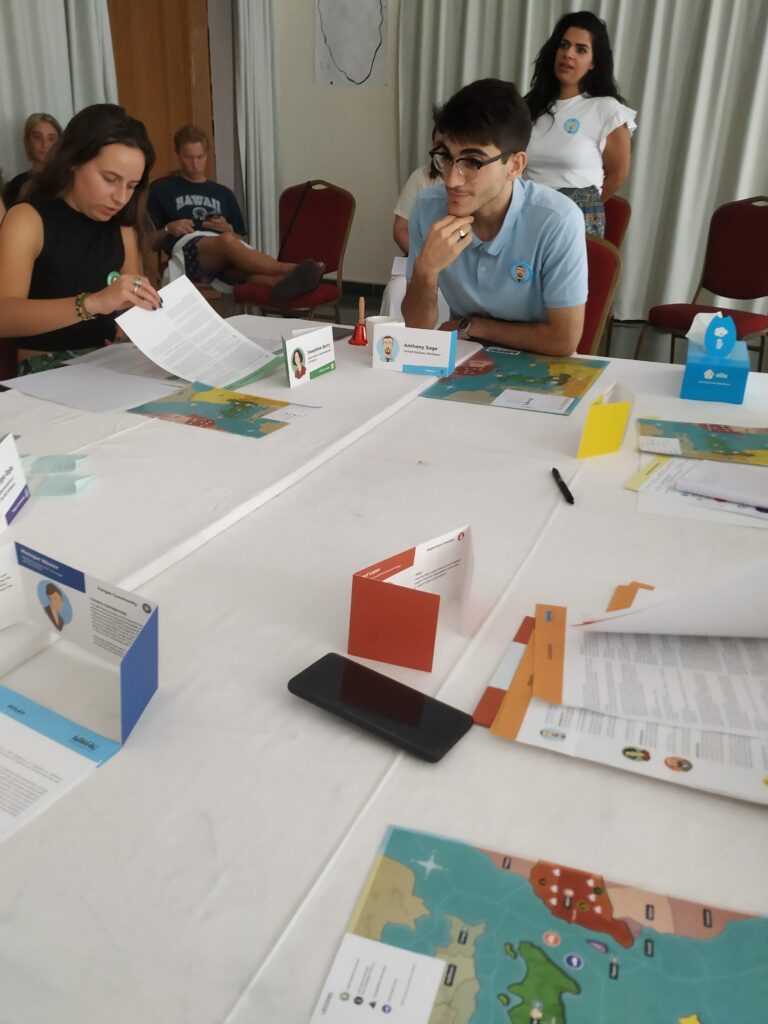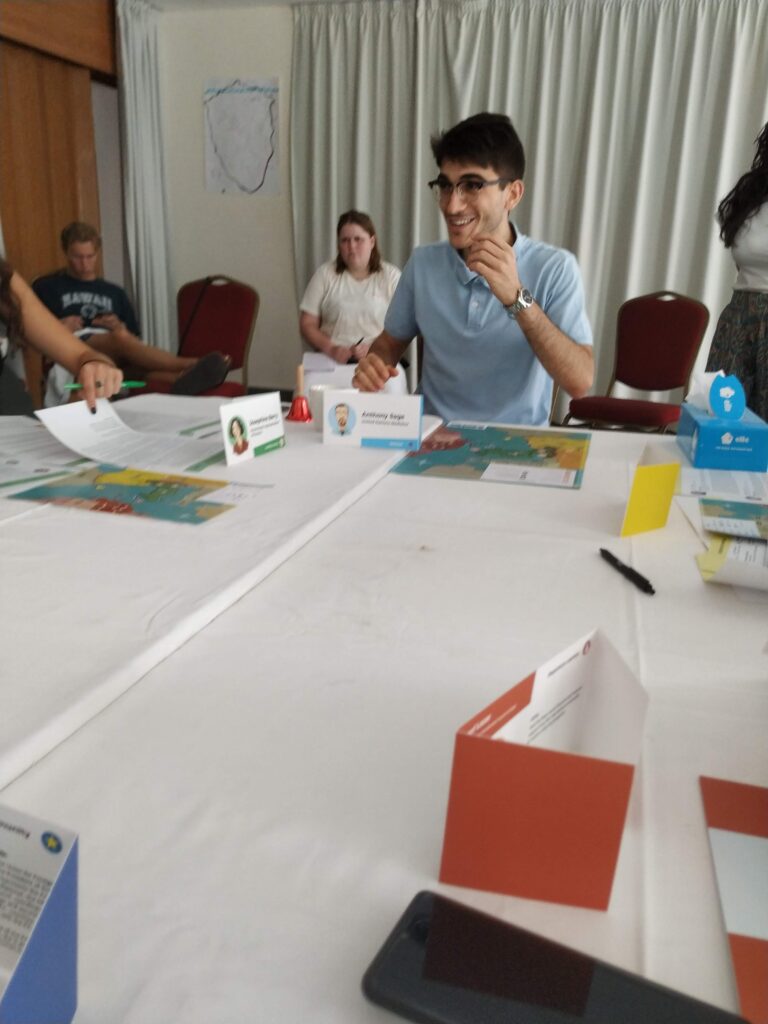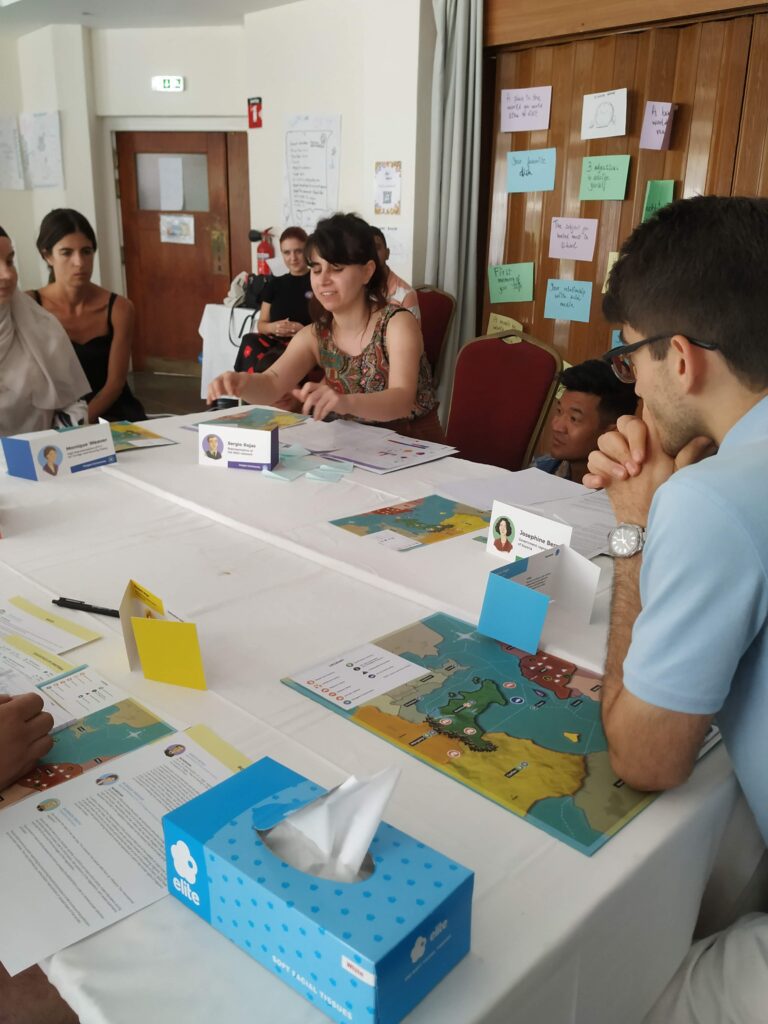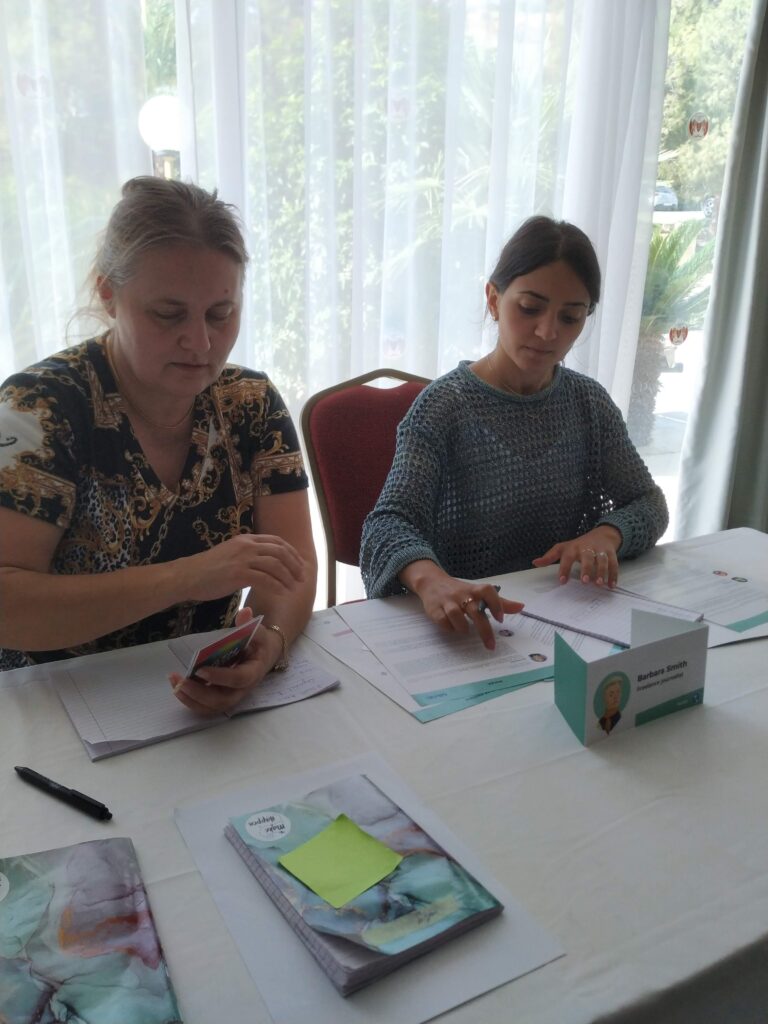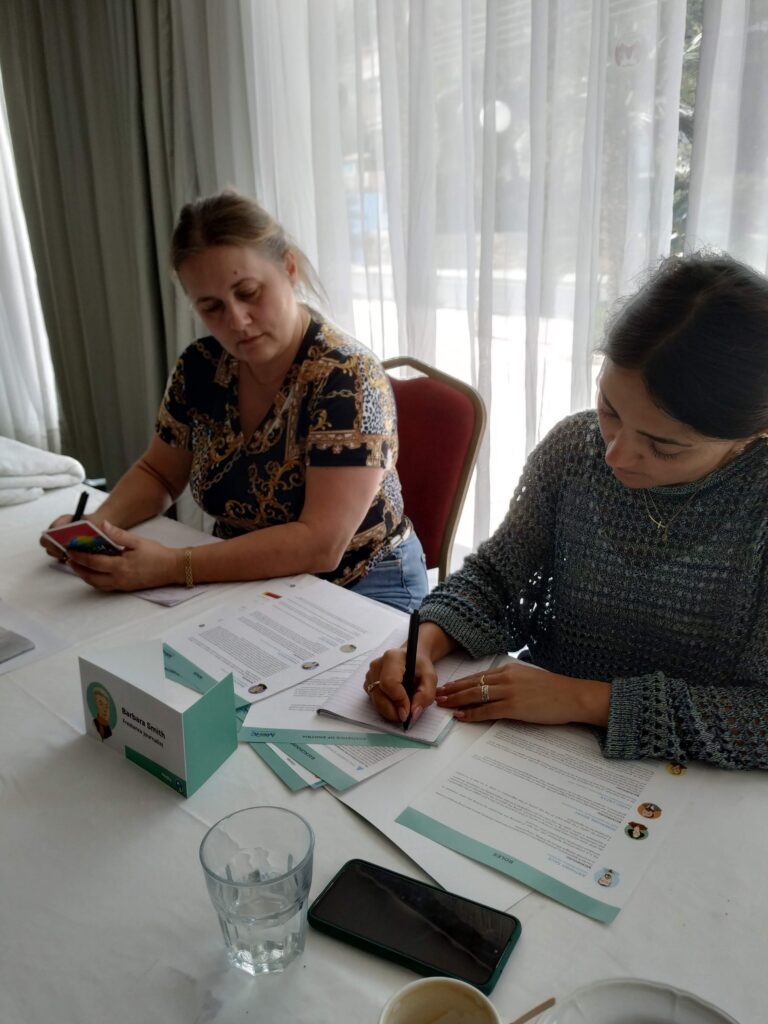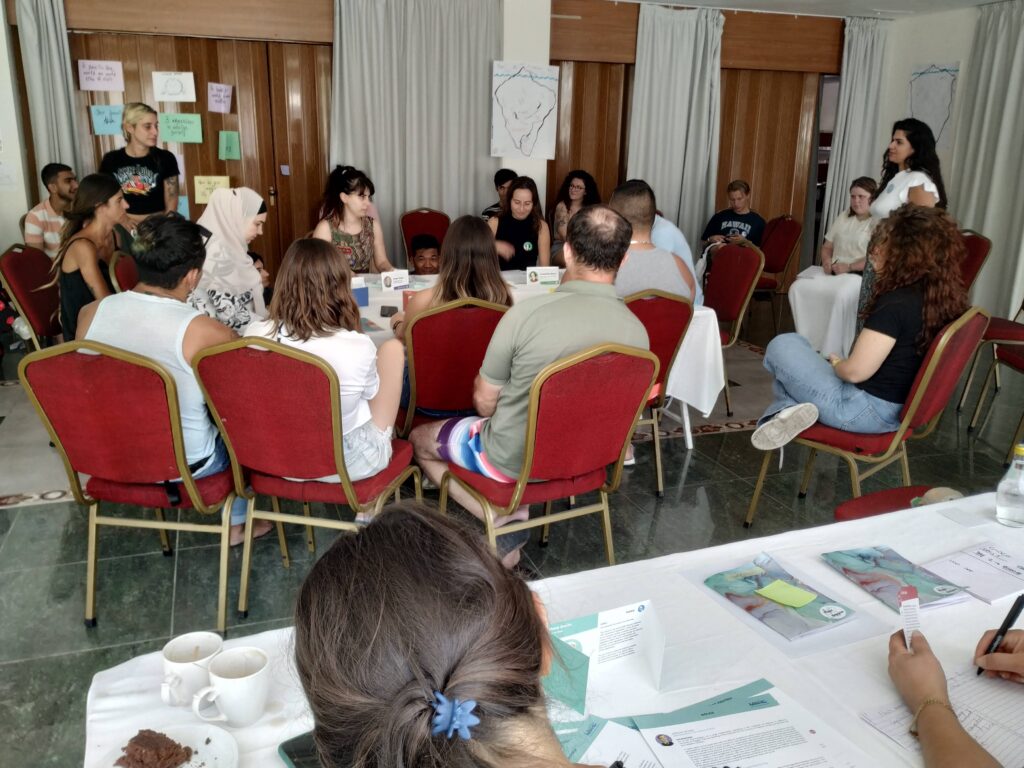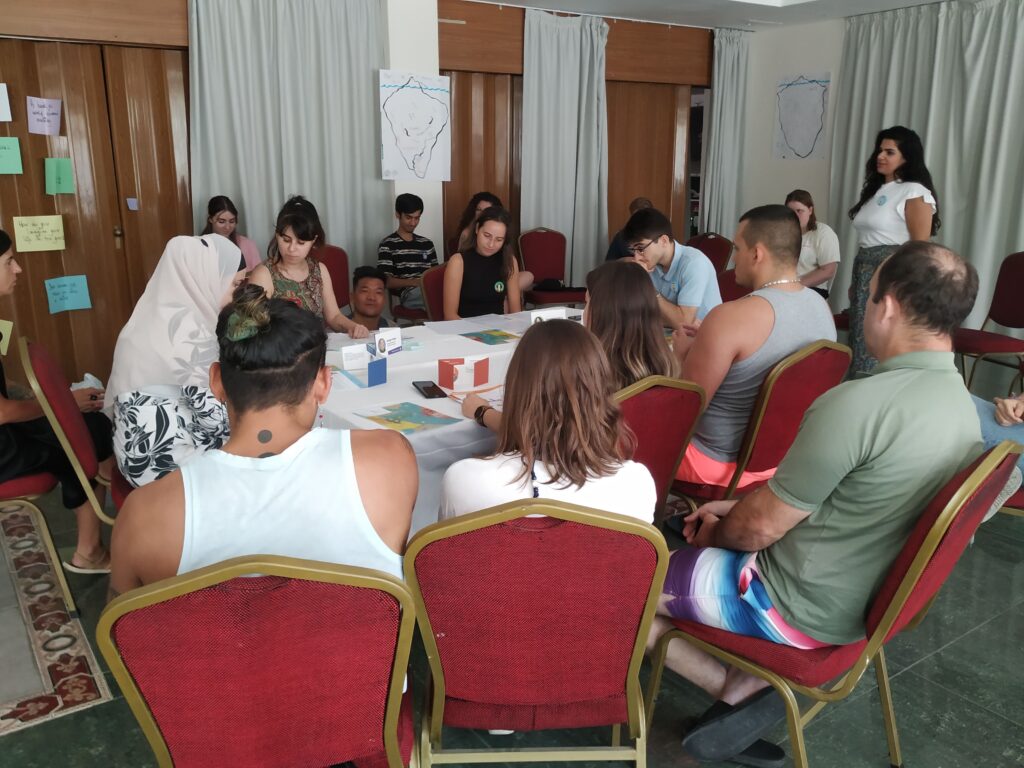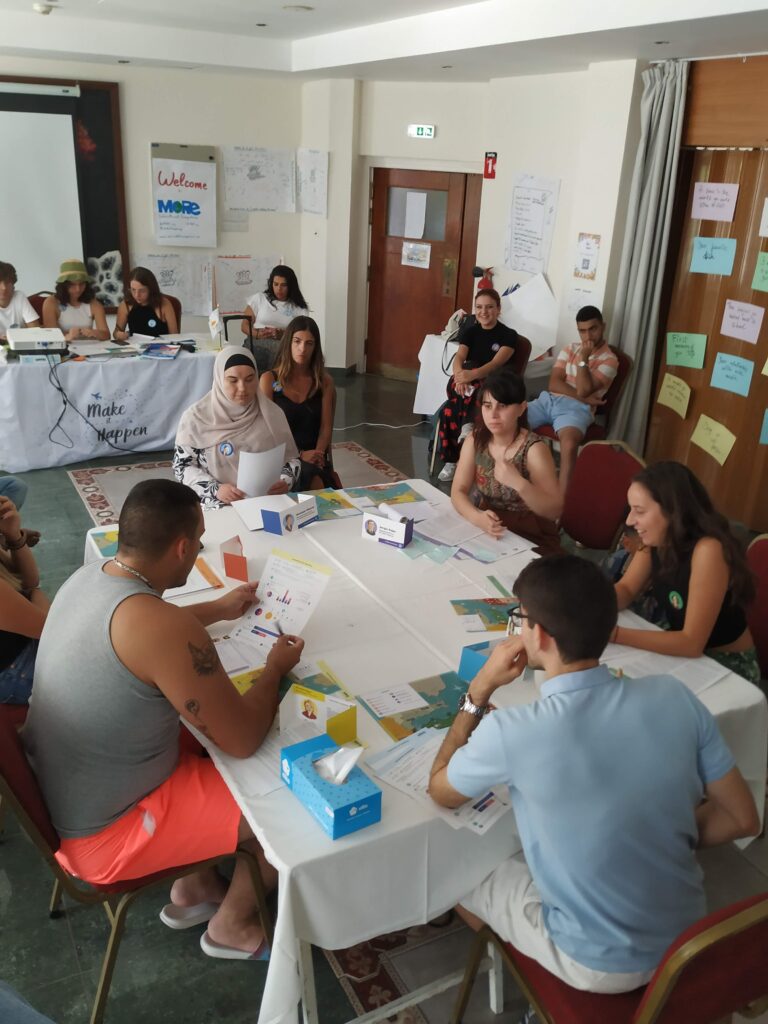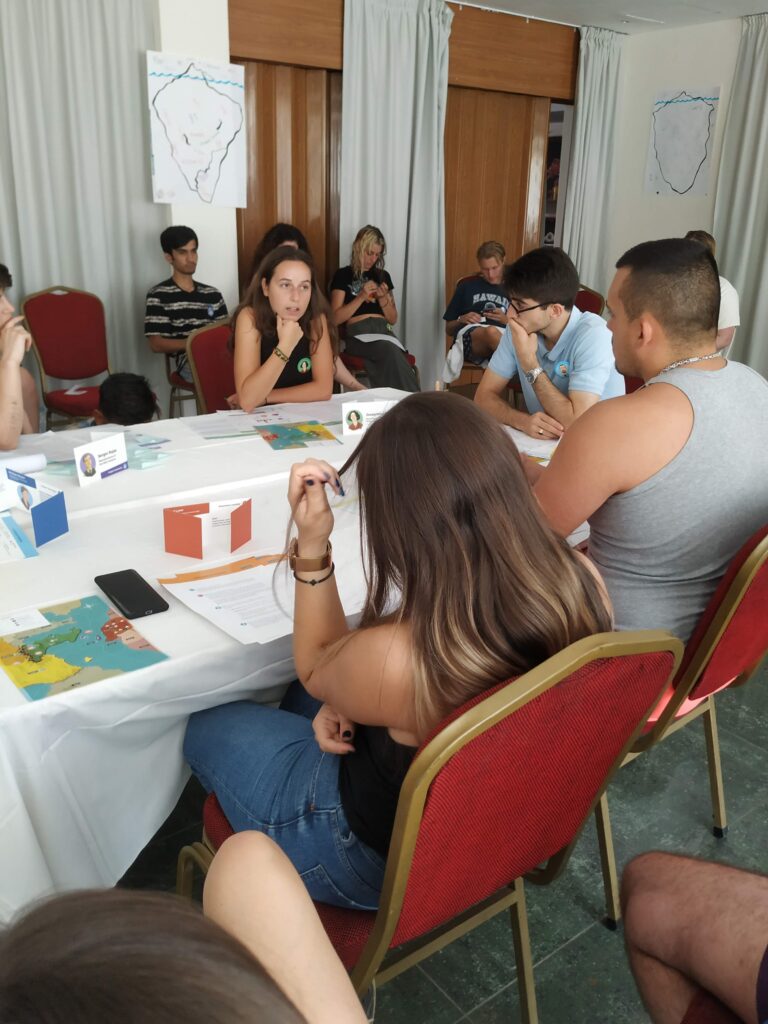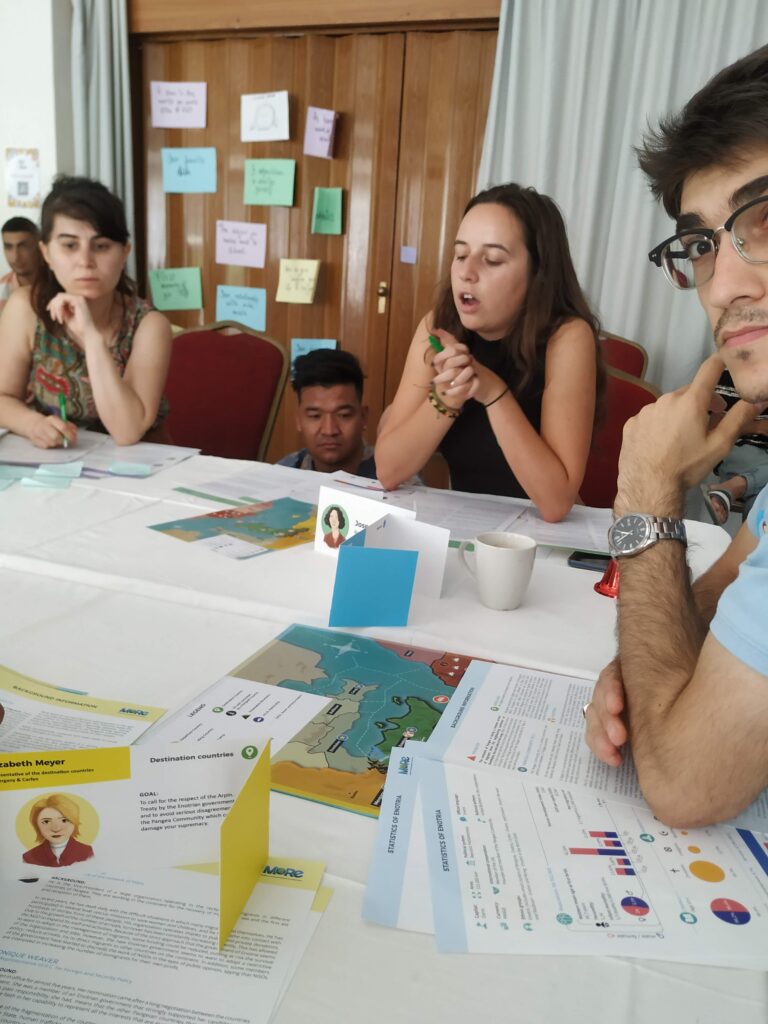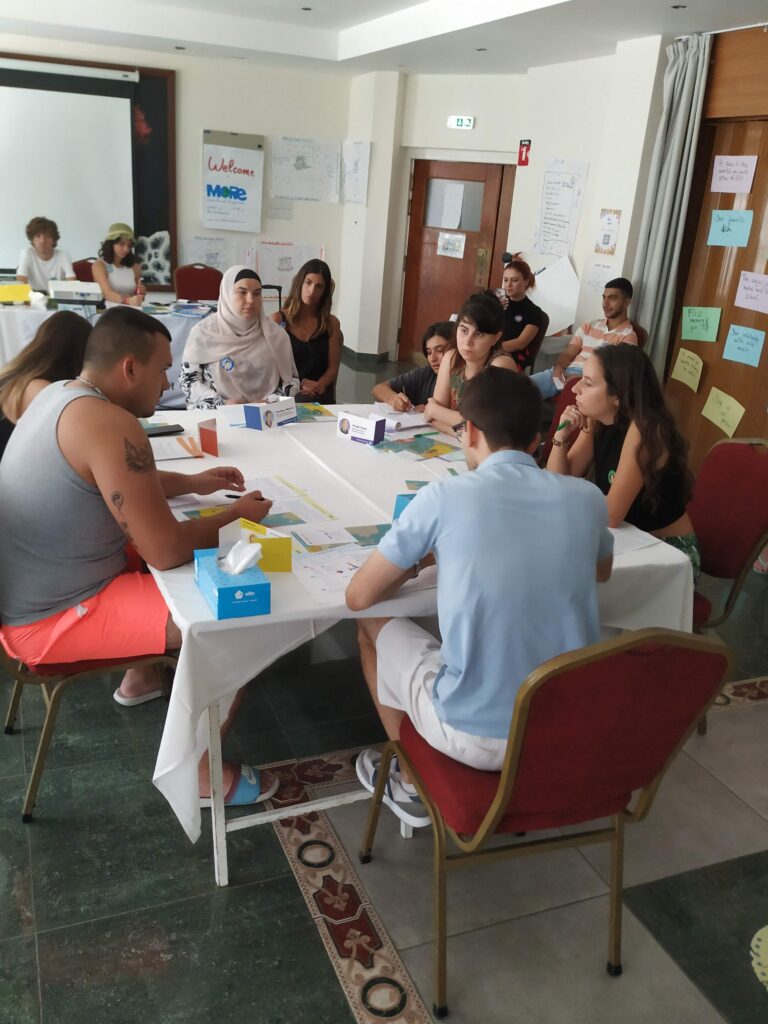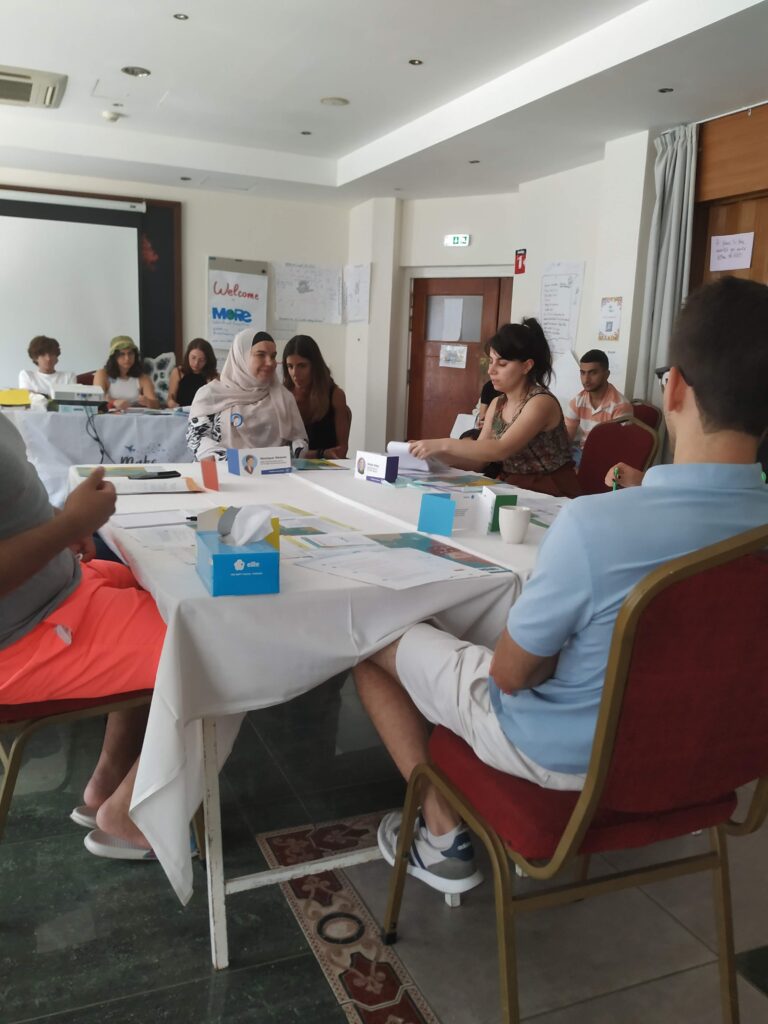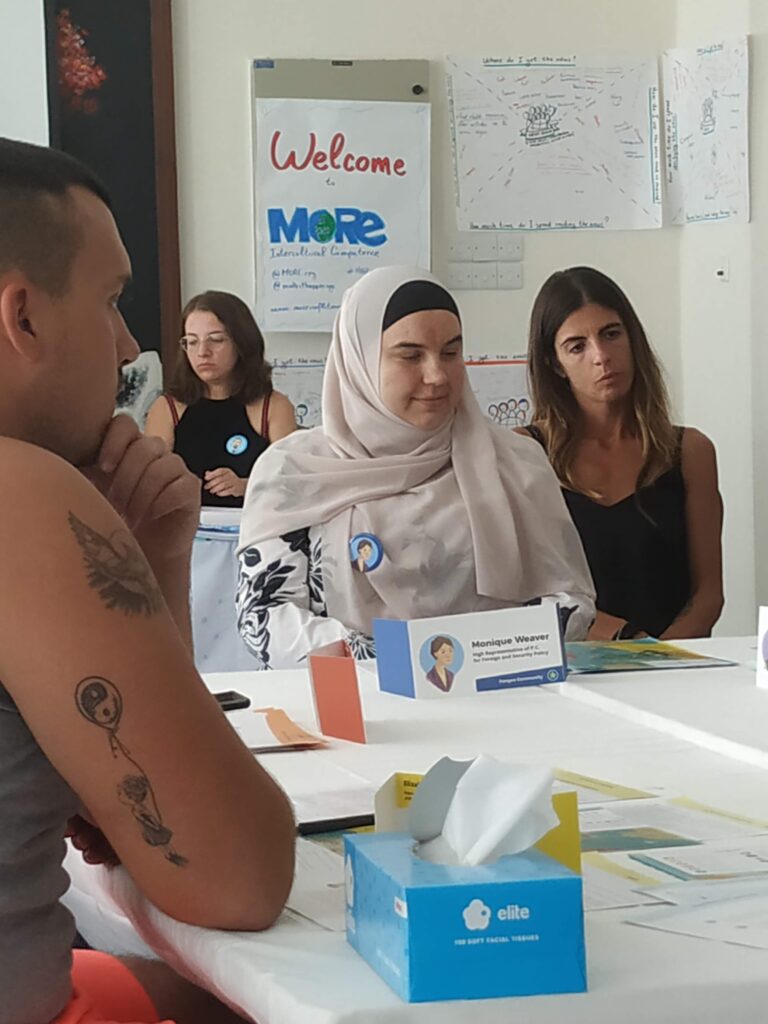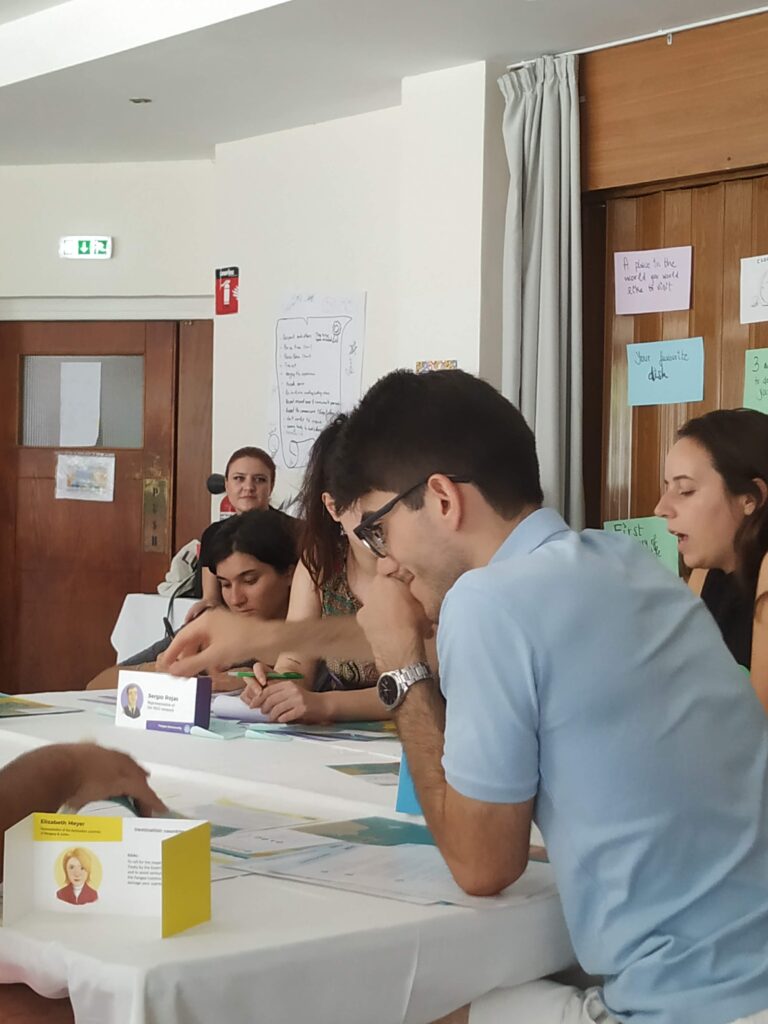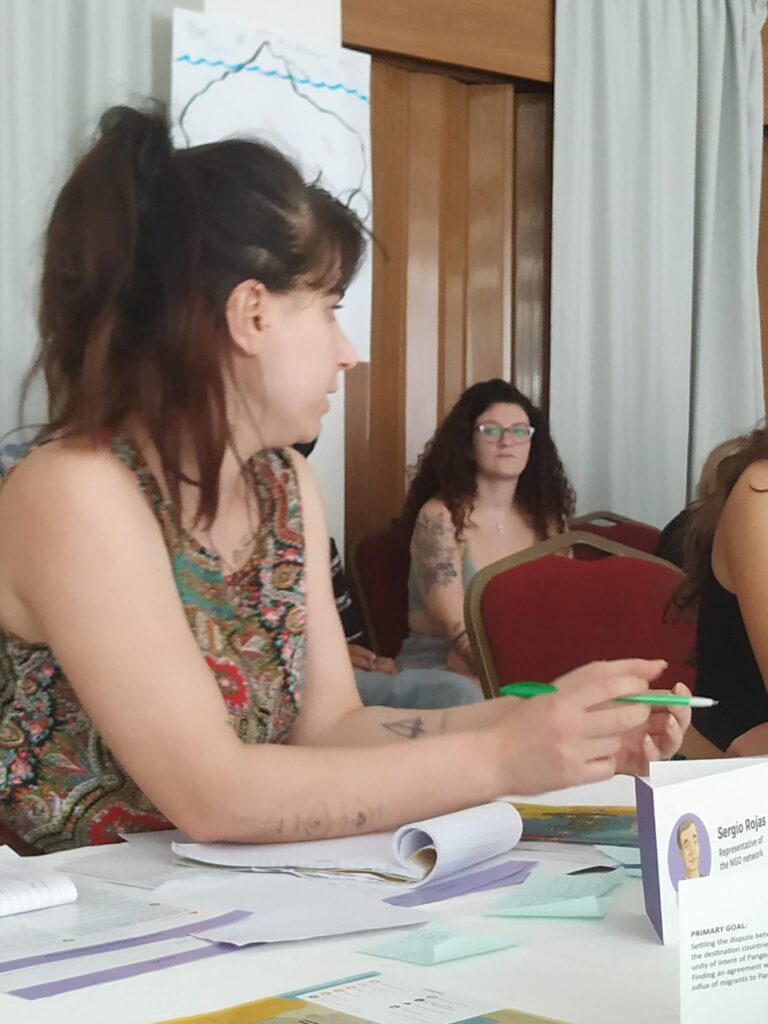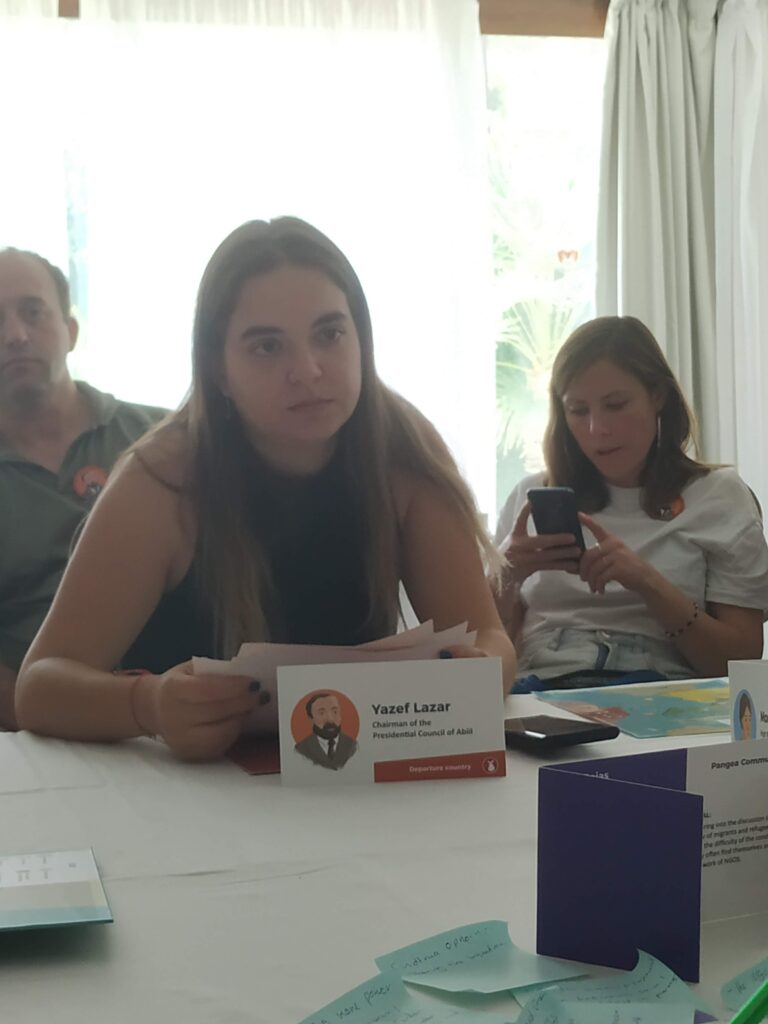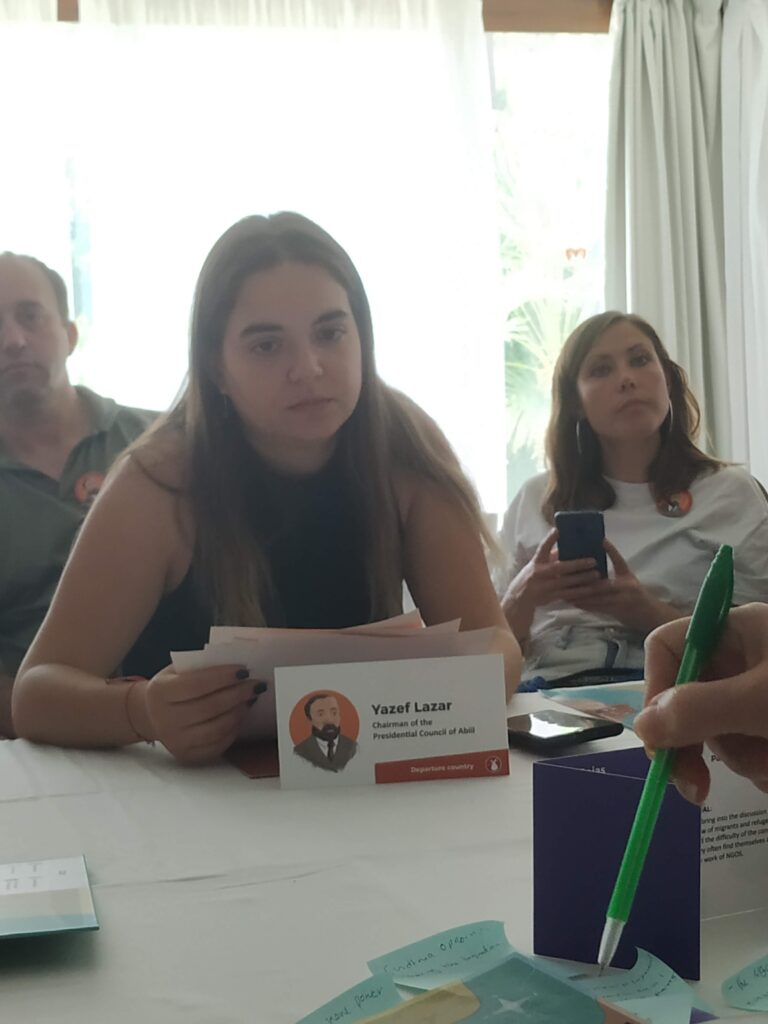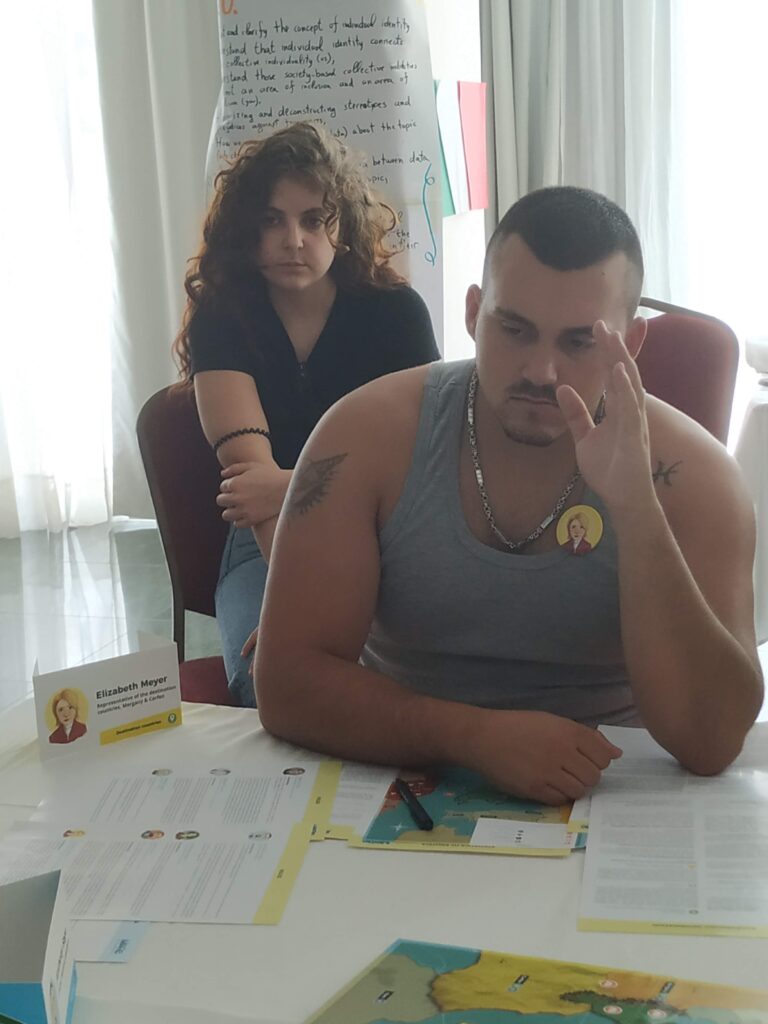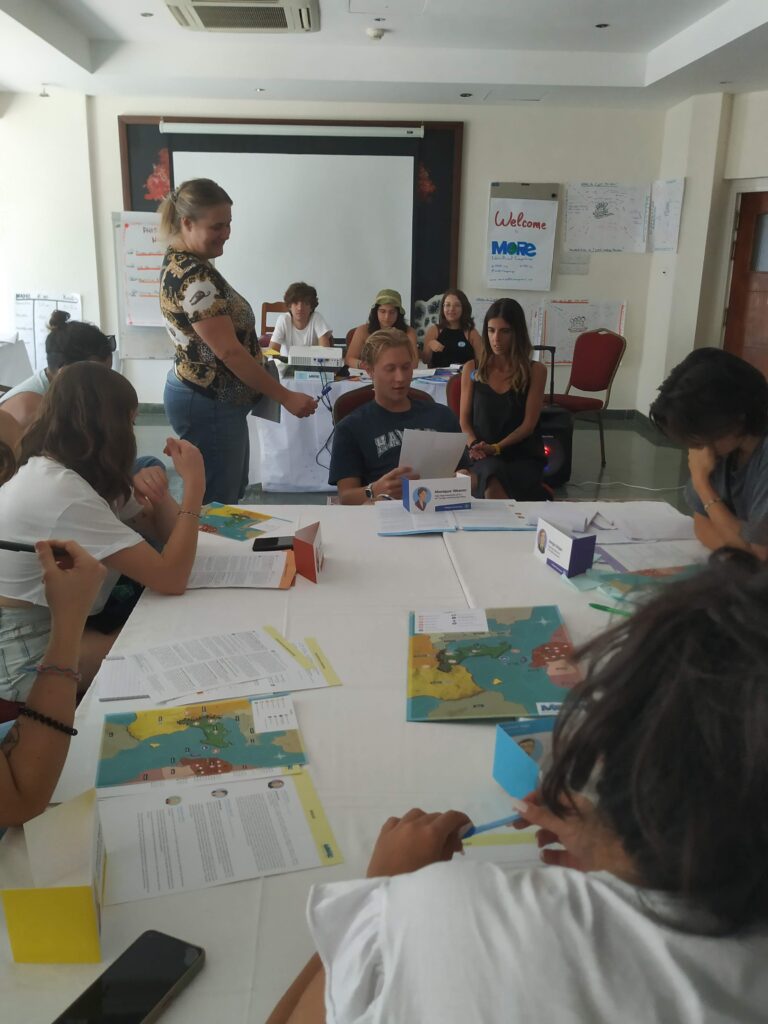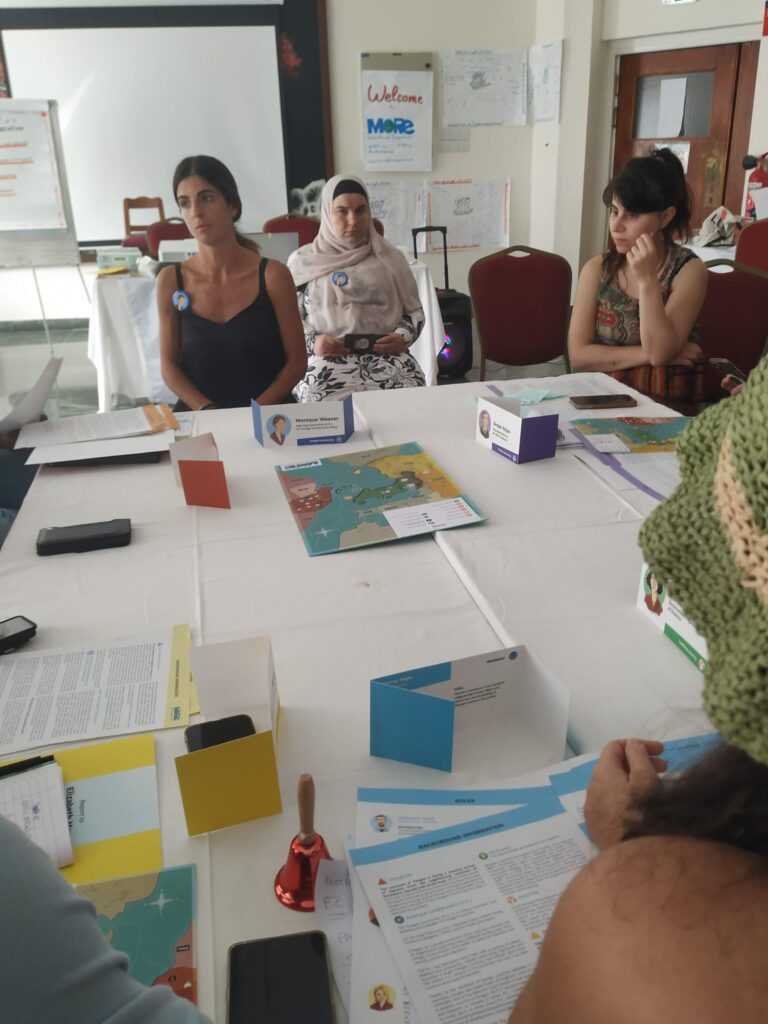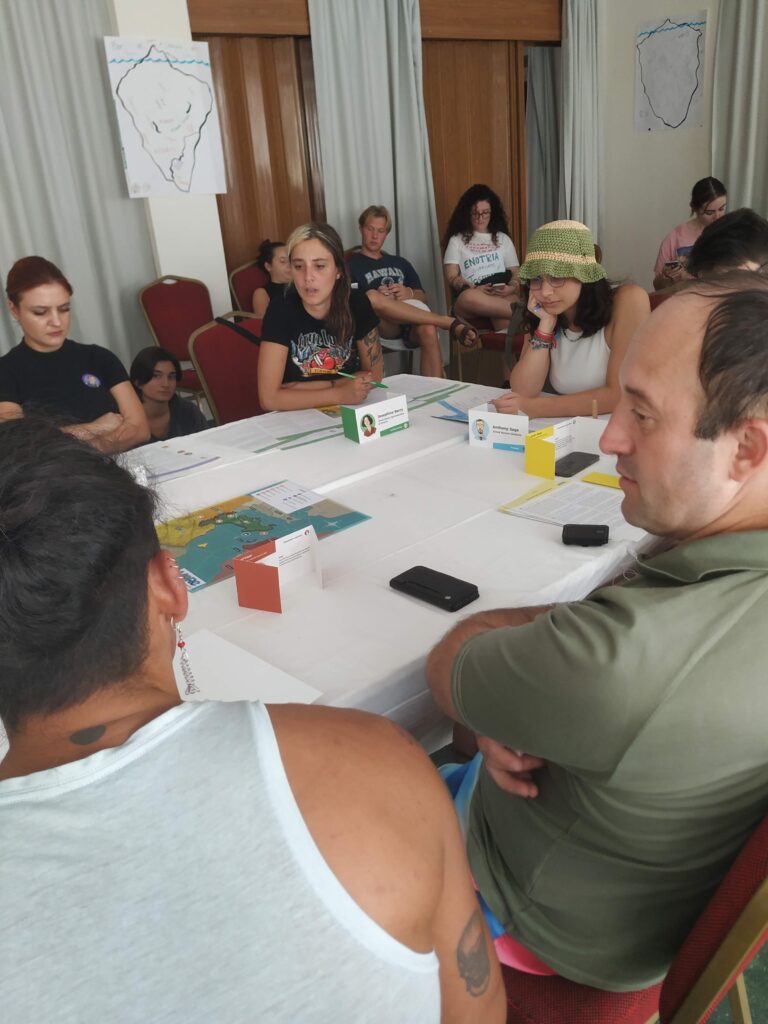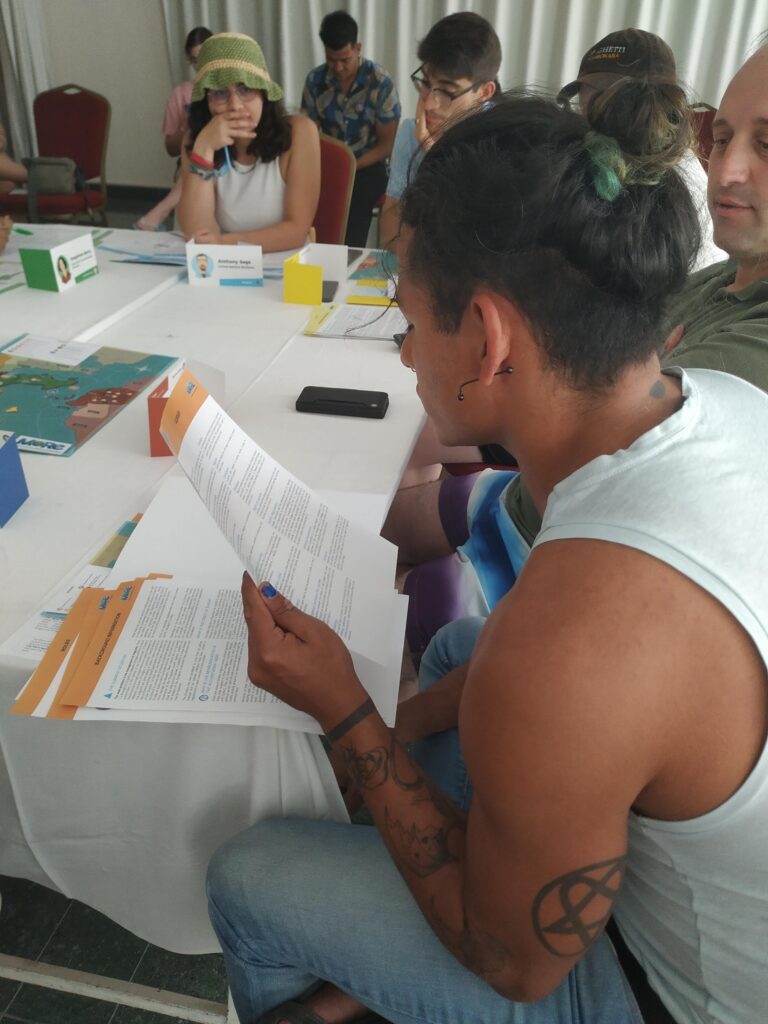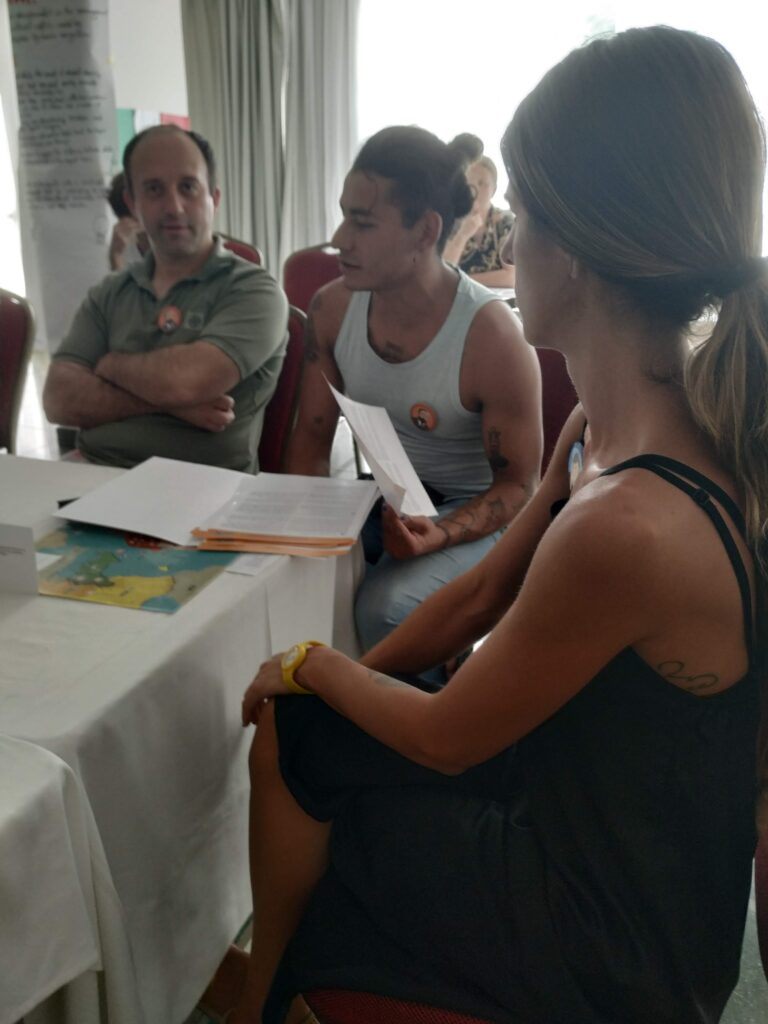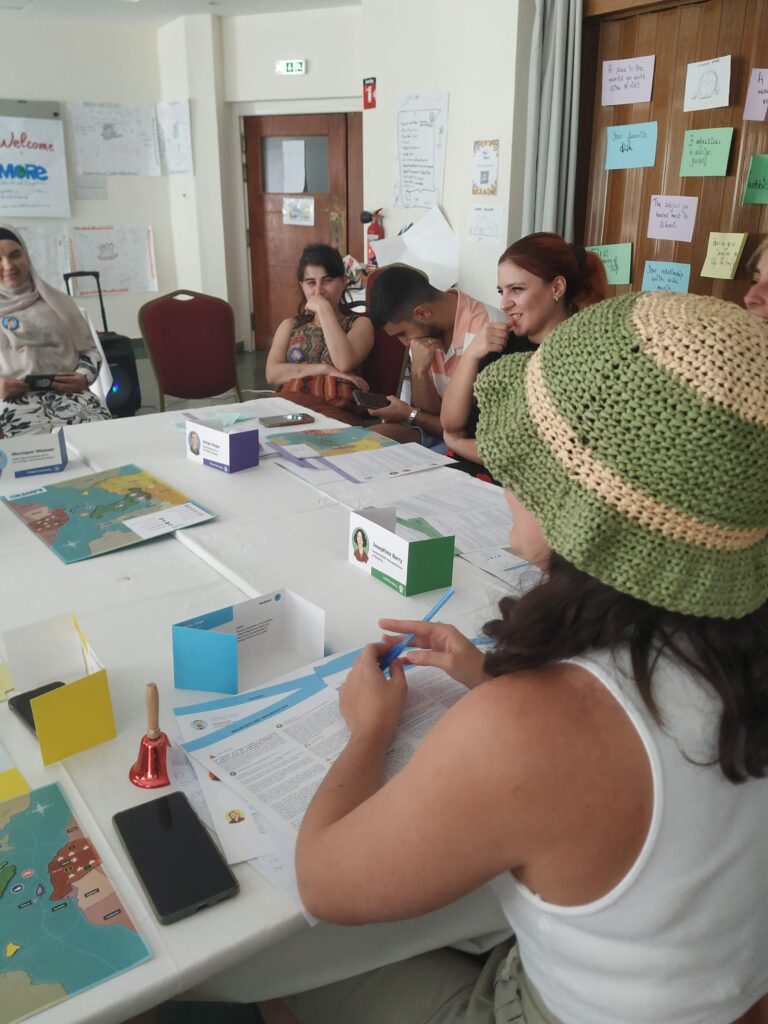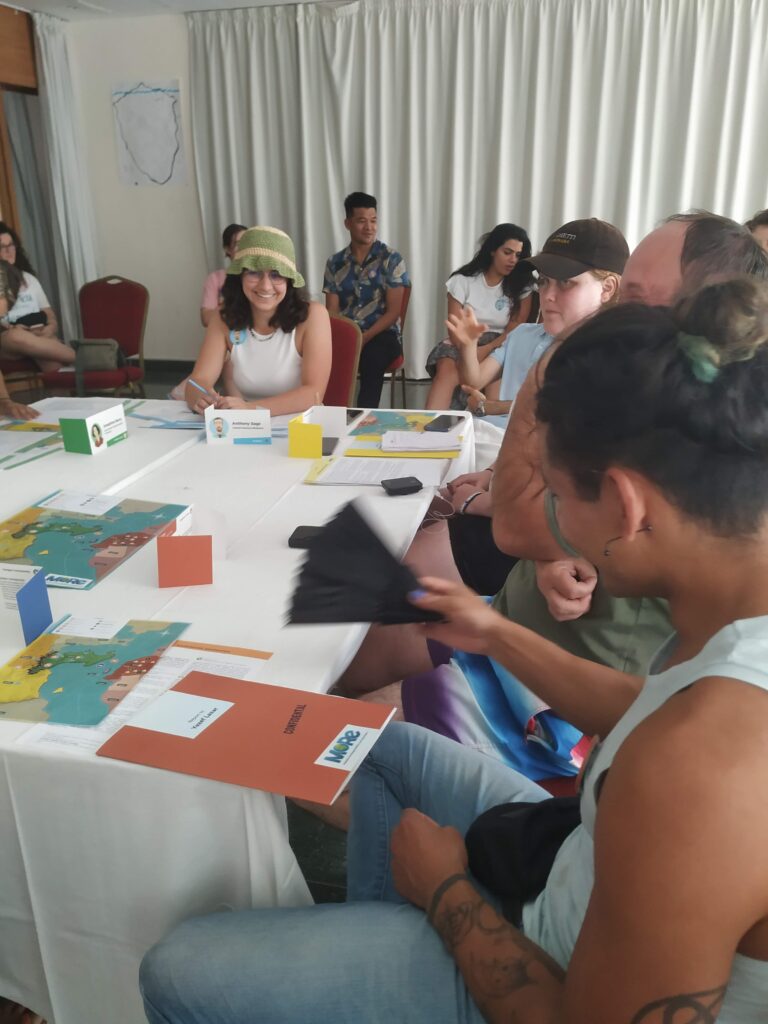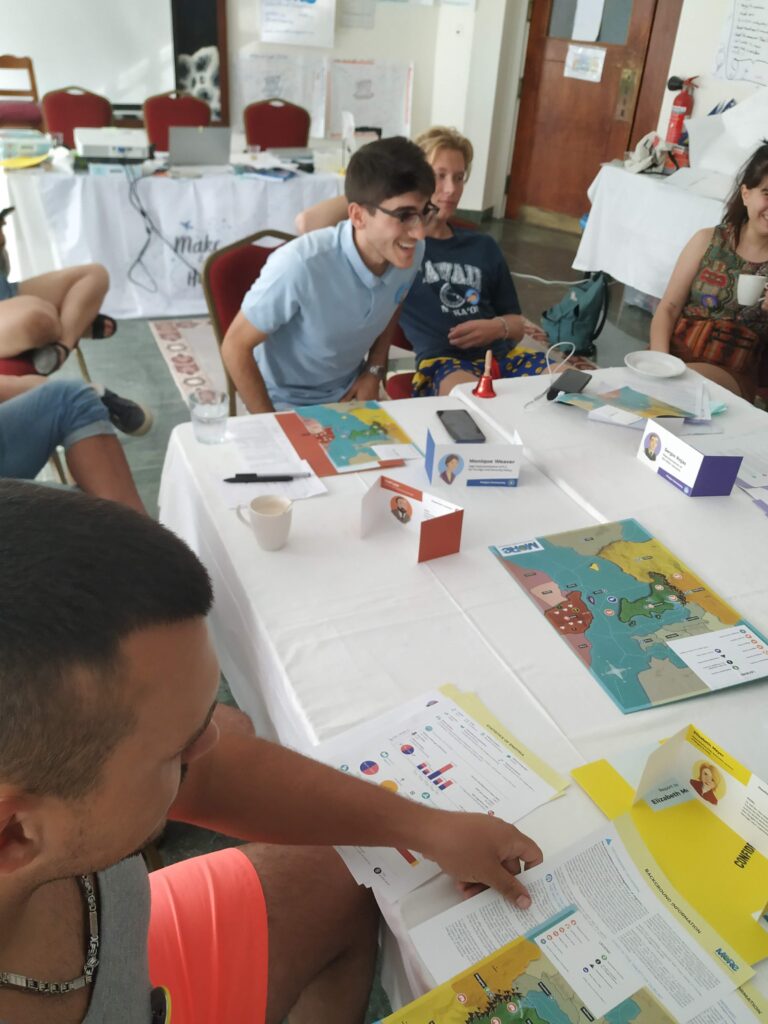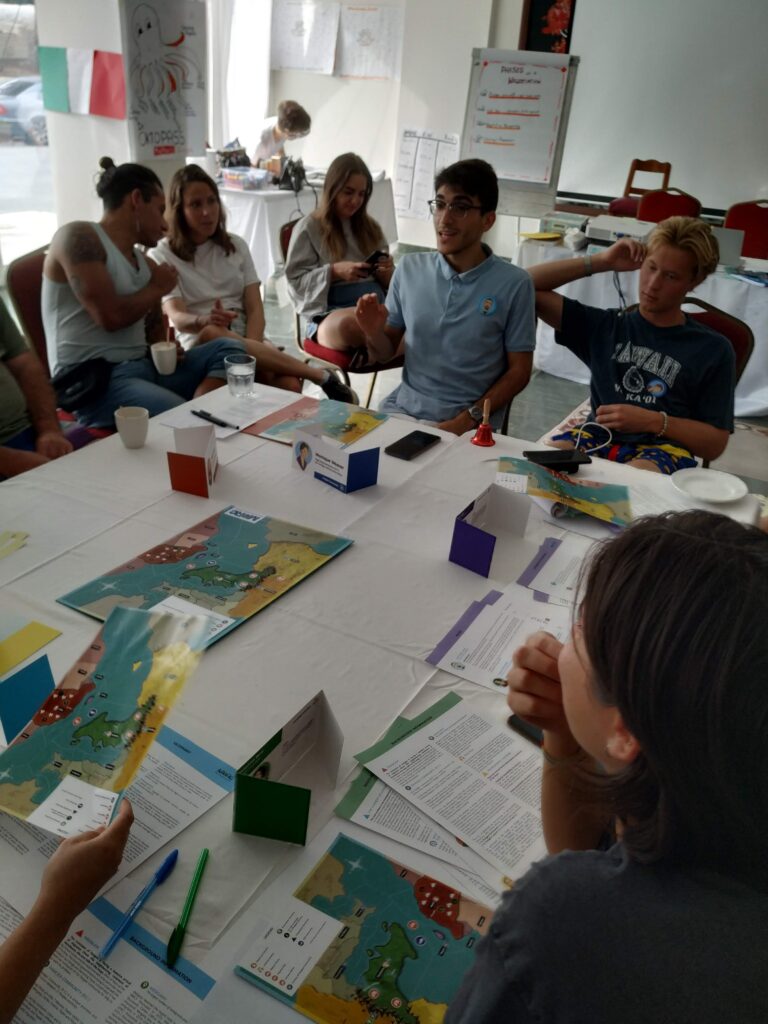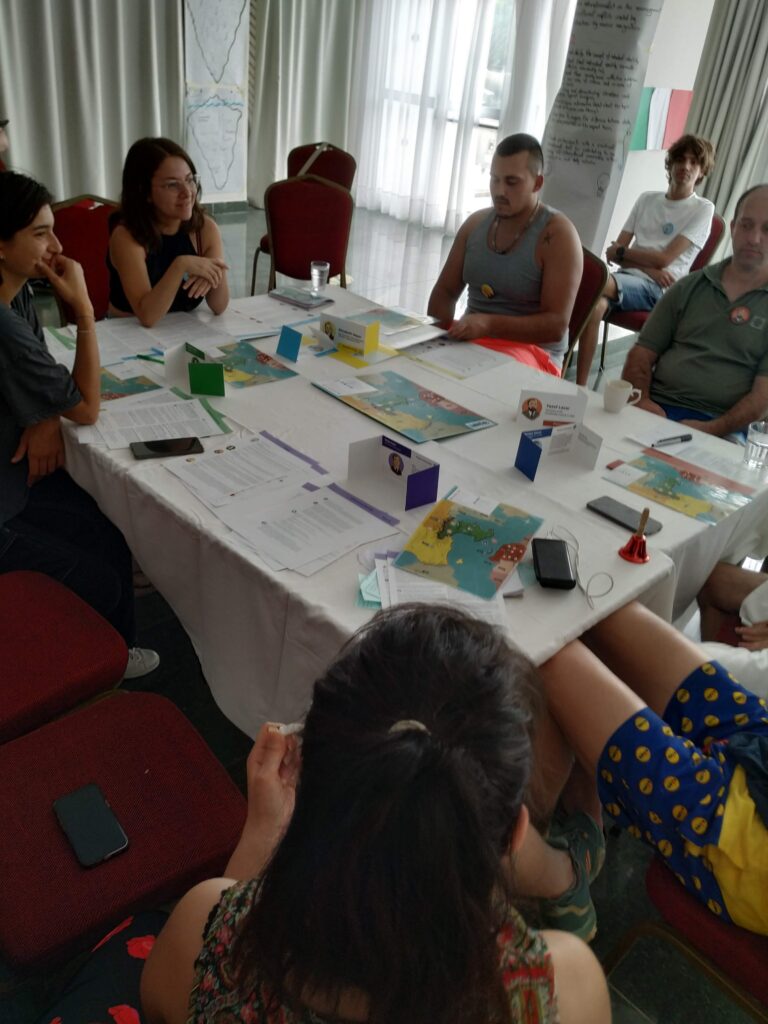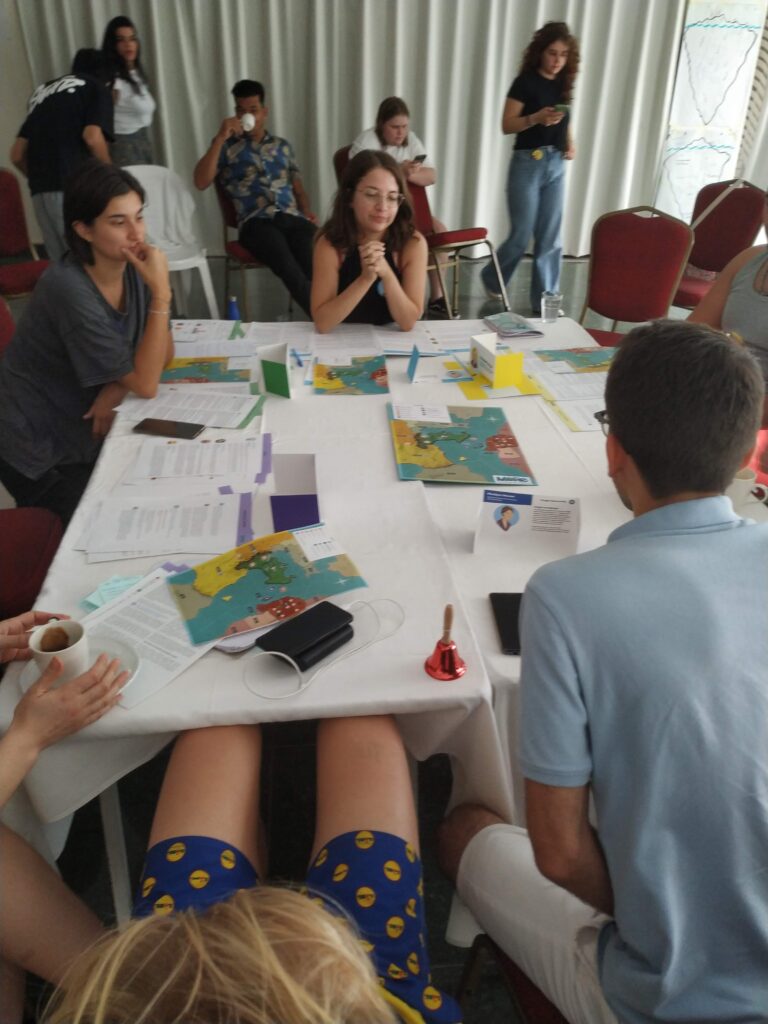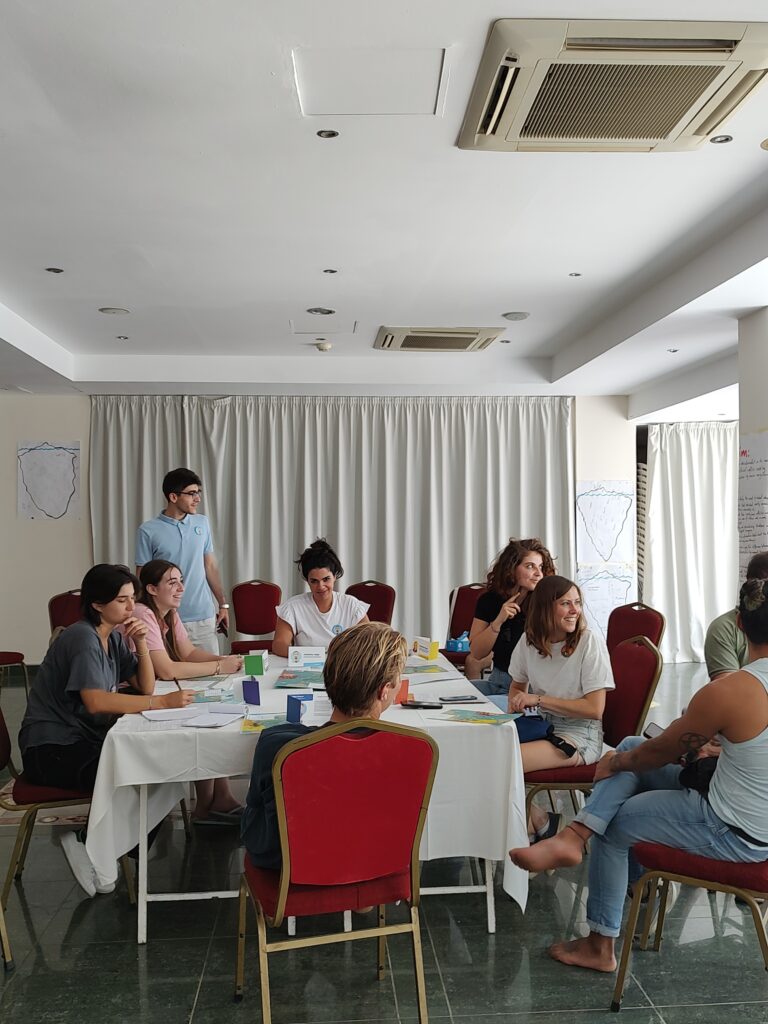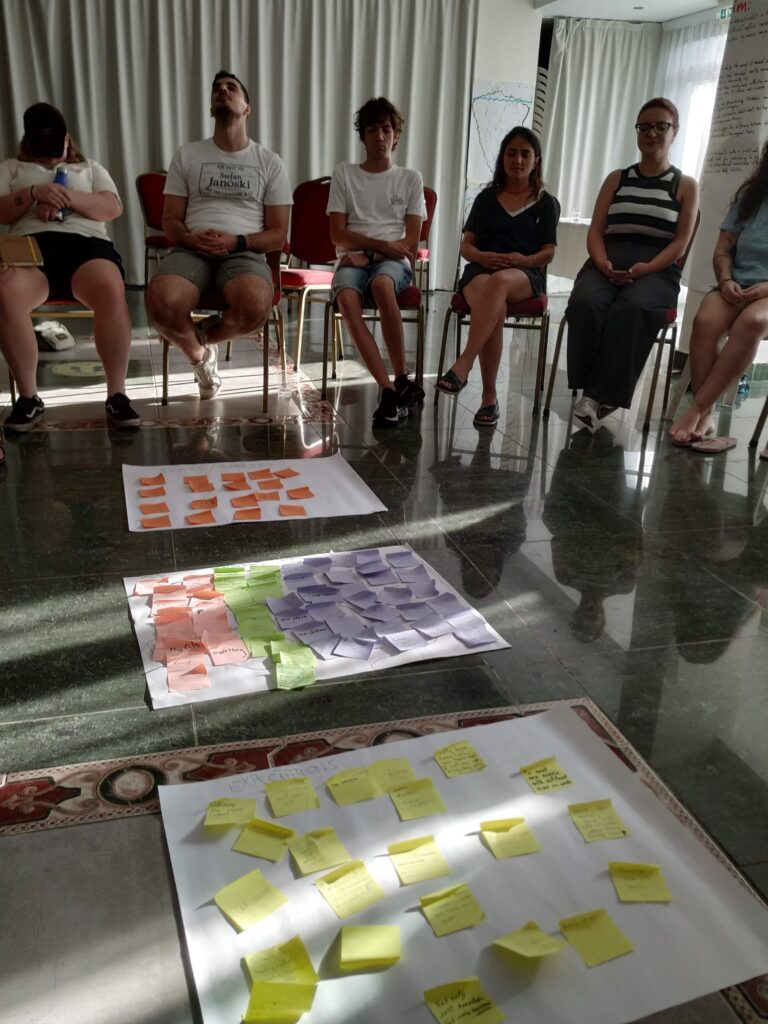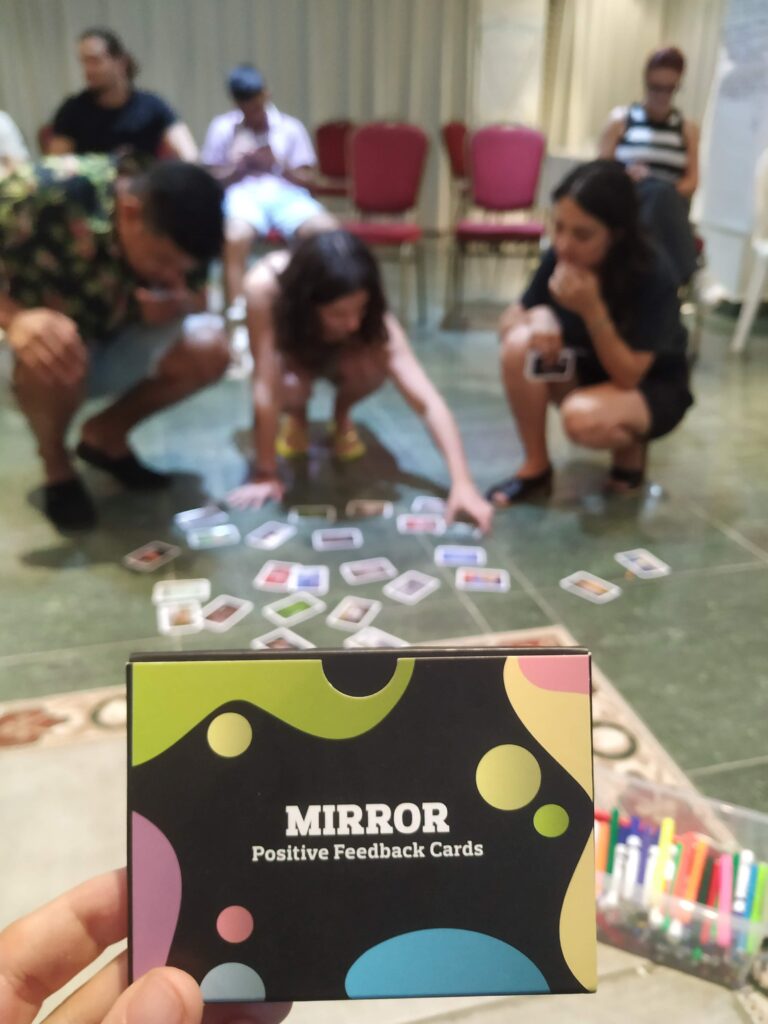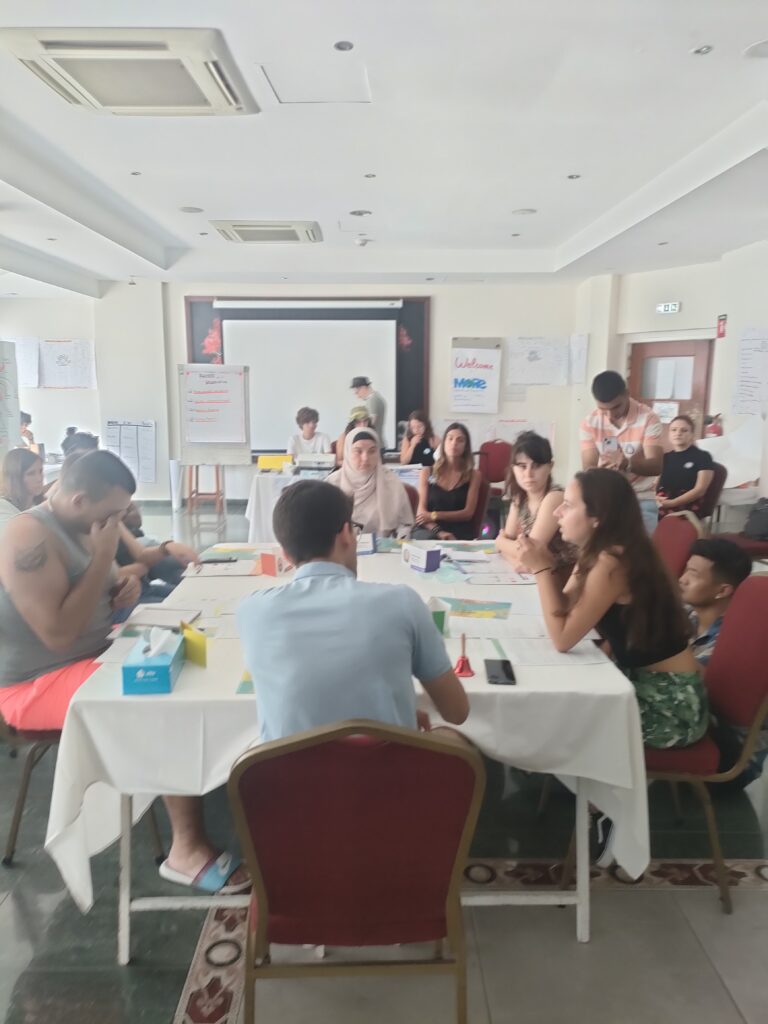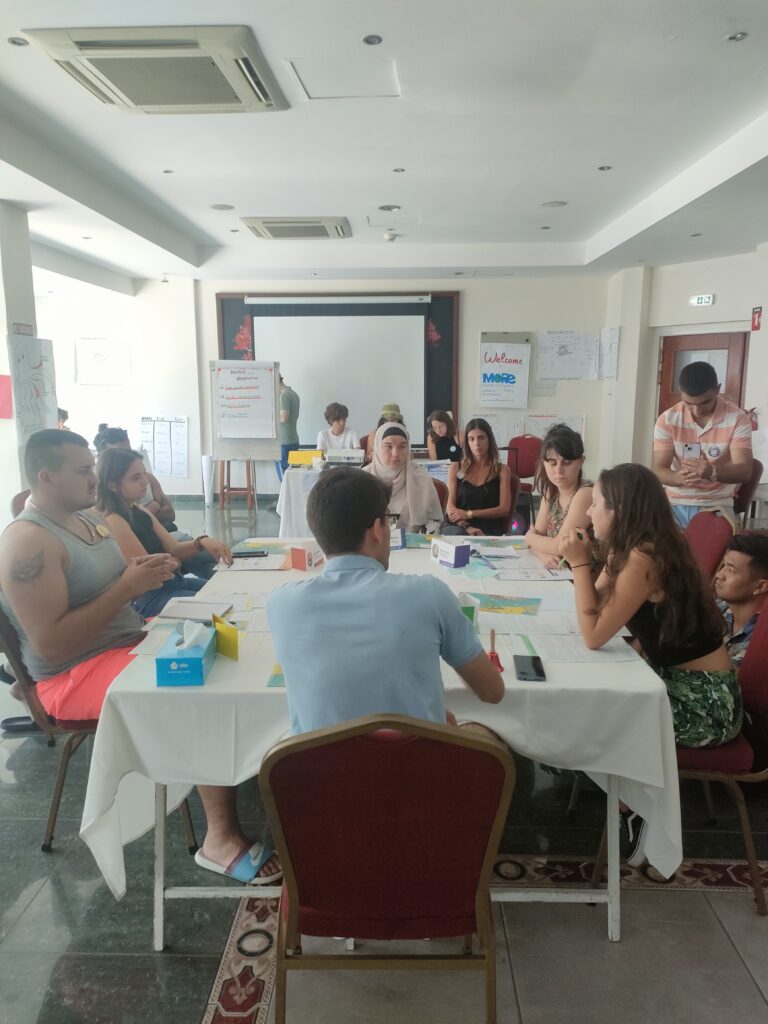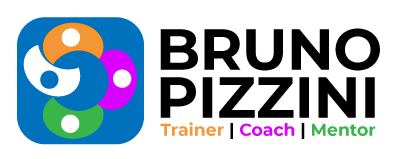In November 2023, I had the opportunity to be part of the MORE – Intercultural Competences training course in Limassol, Cyprus—an immersive, 10-day learning experience that brought together education professionals from across Europe to explore identity, diversity, and migration through non-formal education and game-based learning.
Organised by Make it Happen NGO, the training aimed to support the goal of “Inclusive Societies” as defined in the European Youth Strategy 2019–2027. The heart of the experience was MORE, an educational role-play game designed to explore conflict management in the context of migration, human rights, and negotiation. Through simulation, discussion, and reflection, participants deepened their understanding of intercultural dynamics and learned how to apply these insights in their professional environments—whether in schools, NGOs, or youth centers.
The group consisted of 28 participants—youth workers, trainers, and teachers—from Armenia, Italy, Sweden, Spain, Germany, and Bosnia and Herzegovina. This cultural diversity enriched every discussion and created a genuine space for dialogue across different perspectives and realities.
Over the course of the training, we used a wide range of non-formal education methods. We began with trust-building exercises and group agreements, then moved into deeper processes like the Youthpass Mandala and even experimented with AI-based emotional reflection tools. These sessions helped participants become more aware of their own learning styles and how emotions influence decision-making in high-pressure environments.
The core of the experience was, of course, the MORE game. Through role play, participants stepped into the shoes of key actors in a migration crisis—balancing conflicting interests, managing negotiations, and navigating moral dilemmas. These simulations pushed everyone to confront assumptions and sharpen their intercultural communication and problem-solving skills.
Beyond the game, we explored cultural conflict, social exclusion, and media literacy—focusing especially on critical thinking around migration narratives and source verification. There were also dedicated sessions on active listening, empathy, and multilingual communication, all essential skills for anyone working in diverse youth settings.
The impact was clear and immediate. Participants were not only trained to use the MORE tool—they were also certified and empowered to replicate the learning in their local contexts. Each participant committed to running workshops with at least 20 young people, documenting the outcomes through photos, videos, or written reflections. This meant that even before the training concluded, the ripple effect had begun—reaching potentially up to 600 young people across Europe.
Perhaps most importantly, the project laid the foundation for future collaboration. With qualified trainers now embedded in each of the seven participating organizations, the door is open to new projects, deeper international partnerships, and the integration of game-based learning into regular youth work practices.
The training in Limassol reminded us that intercultural competence isn’t a theory—it’s a practice. And with tools like MORE, we can make that practice tangible, engaging, and transformative.
Learn more about the game at www.moreconflictmanagement.com
